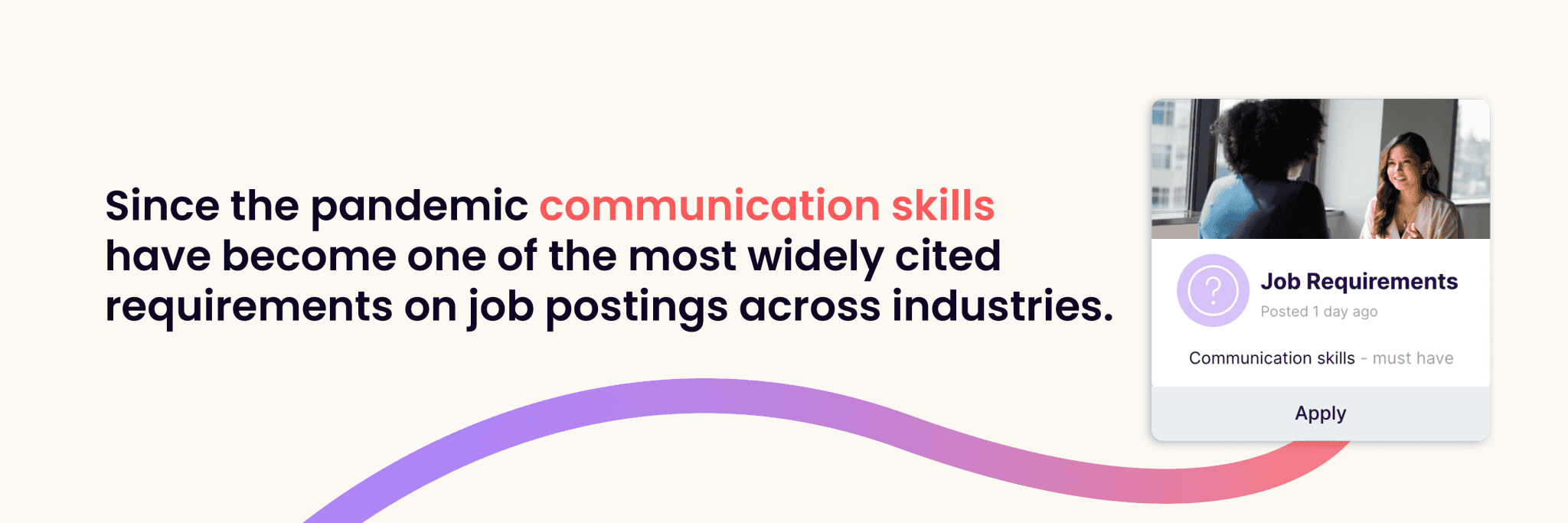5 Skills Employee Experience Leaders Need Right Now

Barry Nyhan
Senior Demand Gen & Marketing Ops
24 Oct 2023

Employee expectations have changed dramatically in recent years, and with them comes a range of new opportunities – and responsibilities – for HR, internal communications, and employee experience leaders.
In the past, employee experience meant a cake on your birthday and a watch upon retirement, and perhaps a team-building exercise or two along the way. In those days any consideration given to the growth and development of staff members was considered a bonus, but hardly an expectation.
Today things are quite different, and for a lot of reasons – the most significant of which is the result of some fairly recent developments. The pandemic ushered in a new and more decentralized era of work, making the development and delivery of EX initiatives – ranging from onboarding to training to culture building – far more complex.
If that wasn’t enough of a challenge, the last year has also seen one of the most competitive employment markets in a generation, making EX a competitive necessity.
Furthermore, as the economy becomes more volatile employers are under greater pressure to get more out of human capital resources, requiring employee experience leaders to demonstrate results while doing more with less.
That is why now is the time for those in the industry to take a hard look at their skillsets and identify any gaps. Here are the five most important areas to focus on right now.

1. Up-to-date knowledge of the technology landscape
Employees today expect a highly personalized working experience, which is only possible at scale with the help of technology. Not every EX professional needs to know how to code, but as HR continues to work more closely with IT it’s important that they share a common language.
That’s why it is incumbent on EX professionals to maintain an up-to-date understanding of the technology landscape, and how new tools can help them achieve key goals.
2. A baseline understanding of data utilization
The old adage ‘what gets measured gets managed’ is especially true for departments that depend on less tangible key performance indicators (KPIs). When it comes to improving employee sentiment it’s important to understand those key metrics, how they’re calculated, and what they can – or can’t – tell you about your employee population.
Strong employee data utilization efforts can go a long way in helping teams cut programs that aren’t working and double down on the ones that are. In order to manage the challenges of the current ecosystem, it is vital for EX professionals to have some degree of comfort utilizing employee data.
3. Writing skills
As our workplace becomes more digitized, more decentralized, and more asynchronous, there is a growing need for strong written communication skills. In fact, since the pandemic communication skills have become one of the most widely cited requirements on job postings across industries.

Strong written communication skills have always been an asset, but in today’s world, they are widely considered a necessity, especially in a role that so heavily depends on clear communications with a range of stakeholders.
4. Asynchronous communication skills
While writing is a strong step in the right direction, EX professionals will also have to get creative with other modes of asynchronous communication as they continue to navigate a more distributed workforce.
Many are already experimenting with new modes of communicating with their more remote workforce – from internal podcasts and asynchronous video to internal social networks – and as time goes on the need to have a strong understanding of asynchronous communication in a variety of formats will only grow stronger.
5. Empathy and understanding
The last few years have been really tough on employees of all shapes and sizes, and the cumulative effects are impossible to ignore, especially for those responsible for maintaining employee satisfaction.
The Great Resignation was largely born out of a lack of employer empathy, and organizations that want to hang on to their best and brightest talent will increasingly be challenged to demonstrate a strong sense of empathy and understanding.

